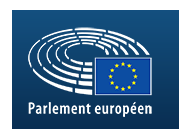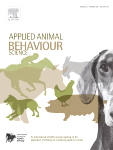Document type audit report DG(SANTE)/2022-7505-RS of the European Commission
Author: DG SANTE
Summary: This report describes the outcome of an audit of Spain, carried out remotely from 10 to 13 May 2022 and on-the-spot from 23 to 27 May 2022, as part of the Directorate-General for Health and Food Safety work programme.
The objective of the audit was to assess the effectiveness of the official controls on the protection of unweaned calves (still on a milk diet) during long journeys.
Spain is a major receiver of unweaned calves from other Member States (around half a million unweaned calves per year) and many of them are transported over long journeys (more than eight hours).
The audit concluded that, although the authorities conducted many controls on livestock transport overall, the implementation of the official controls failed to verify and ascertain compliance with welfare requirements for transporting unweaned calves over long journeys. Nevertheless, operators of the establishments receiving calves providedthem with adequate care, incidents of unfit or dead calves were rare, and the audit team saw no evidence of shortcomings affecting their welfare.
The authorities identified, within their welfare risk assessment, the transport of unweaned calves over long journeys, as a high-risk activity, however the authorities conducted very few checks on that activity particularly at places of destination. Furthermore, the value of the conducted roadside checks covering this type of transport was jeopardised by a shortcoming in the designation of the body performing those checks and delays in taking action in cases of non-compliance.
There were procedures in place for the approval and registration of means of transport. However, the certificates of approval of road vehicles transporting bovine animals did not provide any information as regards their suitability for transporting unweaned calves over long journeys. Furthermore, the official veterinarians did not have guidance for consistently assessing the acceptability of such means of transport for this type of animals (i.e. suitability of the watering systems for unweaned calves in the vehicles), and one competent authority approved vehicles without inspecting them.
Other Member States’ authorities approved journey logs with places of destination in Spain, which Spanish authorities had approved as assembly centres. In them, calves did not stay the required 48 hours for places of destination but were re-dispatched between six to 24 hours post-arrival. Although assembly centres may be places of departure after accommodating the animals for six hours, applying that rule to vulnerable animals such as unweaned calves transported over long journeys has particular risks requiring specific consideration and controls. Whilst operators of those assembly centres did apply their own internal procedures minimising the impact of such reduced resting periods, authorities did not identify and assess that risk, nor established measures (e.g. guidance, specific controls) to verify the adequate protection of those calves.
The report contains recommendations to the competent authorities aimed at addressing areas in which further improvements are required or to address the shortcomings identified.






